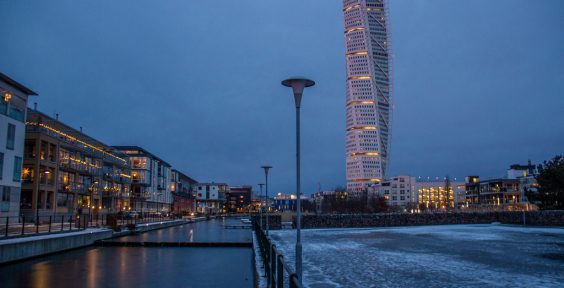Climate-KIC: Malmö encourages school children to create climate action in this year’s Climathon

For the progressive city of Malmö, hosting a regular Climathon is simply not enough; the wider population should be able to share their knowledge and ideas on how we can mitigate climate change in the city. So Malmö has invited a class of 17 pupils to participate in their very own mini Climathon on 28 October.
The children will be able to propose their ideas for how to make schools more climate friendly:
How can we work with the UN’s 17 Sustainable Development Goals within the school framework?
What can pupils and teachers do in class to make school more climate smart and friendly?
How can teachers and students think about and act upon the areas of consumption, waste, reuse, and recycling in the school’s operations?
How can the school minimise its energy consumption?
As a warm-up to their own mini Climathon alongside the global Climathons on 28 October, a class from Sorgenfriskolan in Malmö spent a day in the Malmö Museums being introduced to the challenges and the UN development goals., This preparation will very likely contribute to more sophisticated ideas coming forward on the day of the official Climathon.
Knowledge acquired throughout the day spurred discussion and lively debate between the pupils, teachers and presenters. It was clear that many issues concerning sustainability and climate change had come to the forefront of the pupils’ minds at the end of the day:'We need to produce more sustainable energy to save the earth’s resources. We can use solar and wind energy. It never ends. We can learn more about sustainable energy in school, and what kinds of energy the school uses. In that way, we will start considering what we can do to waste less energy.'
'We can help ourselves to smaller portions of food in school to minimise waste. We generate quite a lot of food waste in school. And we can eat more organic food. We can drive more electric cars, or ride bikes and take buses instead of using cars. It would also be good if we stopped producing so much plastic.'
When discussing the future food supply and how to handle the massive problems of food waste, pupils were asked whether they would consider adding insects to their diets. The response was surprisingly positive, and several wanted to try the larvae which were served as a snack.
Here’s what some of them said:
'Insects are good food. They contain lots of protein.'
'Insects are prepared before they’re served, so their thorns and hair disappear.'
'By cultivating insects, we release much less CO2.'
'It’s good to eat insects, but being able to choose ones’ own food is also good.'
It is going to be exciting to see what great proposals this class will make in front of a panel at the Climathon on 28 October!


 Share this page
Share this page


